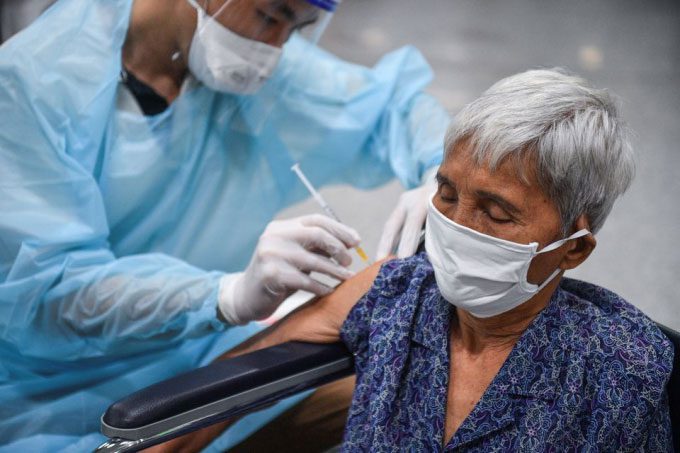While vaccines are an effective disease prevention method, those who have been vaccinated should not be complacent as there is still a possibility of contracting the disease.
Reasons You May Still Contract Covid-19 Even After Vaccination
In reality, there are various reasons why a person may become infected even after receiving the full vaccine doses, some of which are outlined below.
The Vaccine Hasn’t Had Enough Time to Take Effect
The primary mechanism of vaccines is to activate an immune response that helps the body remember and fight off bacteria or viruses when they invade. However, this process requires a certain amount of time, typically a few weeks to a few months. Therefore, a vaccinated person may still contract the disease if they are exposed to the pathogen shortly after vaccination.
The Body Does Not Respond Adequately to the Vaccine
Certain groups, such as the elderly, people living with HIV, those with chronic diseases, and organ transplant recipients, often have weakened immune systems and may not respond fully to vaccines. This can reduce the vaccine’s effectiveness and increase the risk of infection. In such cases, booster doses may be recommended to help optimize or enhance the immune response in these individuals.

The elderly often have weakened immune systems and inadequate responses to vaccines. (Photo: Reuters)
Vaccine Side Effects
Some vaccines may cause side effects that resemble the symptoms of the diseases they are designed to prevent. For example, side effects from the Covid-19 vaccine may mimic symptoms of the disease, including body aches, fatigue, chills, headaches, fever, and nausea.
Many individuals may confuse vaccine side effects with actual illness. However, compared to when infected, these side effects are typically milder, appear shortly after vaccination, and tend to resolve within 1-2 days.
The Strain of the Pathogen Contracted is Not Included in the Vaccine
Vaccines may use whole pathogens or parts of them to trigger an immune response in the body. However, vaccines usually contain only one or a few specific strains of viruses or bacteria that have been selected. Therefore, after vaccination, the body will only develop immunity against these specific strains of pathogens.
If exposed to mutated or different strains of bacteria or viruses not present in the vaccine, vaccinated individuals may still contract the disease. This is because the body has not yet developed immunity against them.
Additionally, each type of vaccine only helps prevent specific diseases. Therefore, vaccinated individuals may still be susceptible to related illnesses or those with similar symptoms. For instance, someone vaccinated against the flu can still contract respiratory illnesses such as colds, bronchitis, stomach flu, or pneumonia (unless pneumonia is a complication of the flu).
Moreover, improper storage or administration of the vaccine can also affect its preventive effectiveness.
In general, those who have been fully vaccinated can still contract the disease. However, vaccination will help make the illness milder and reduce the risk of dangerous complications. This is particularly important for high-risk groups such as children, individuals over 65, and those with weakened immune systems.
















































